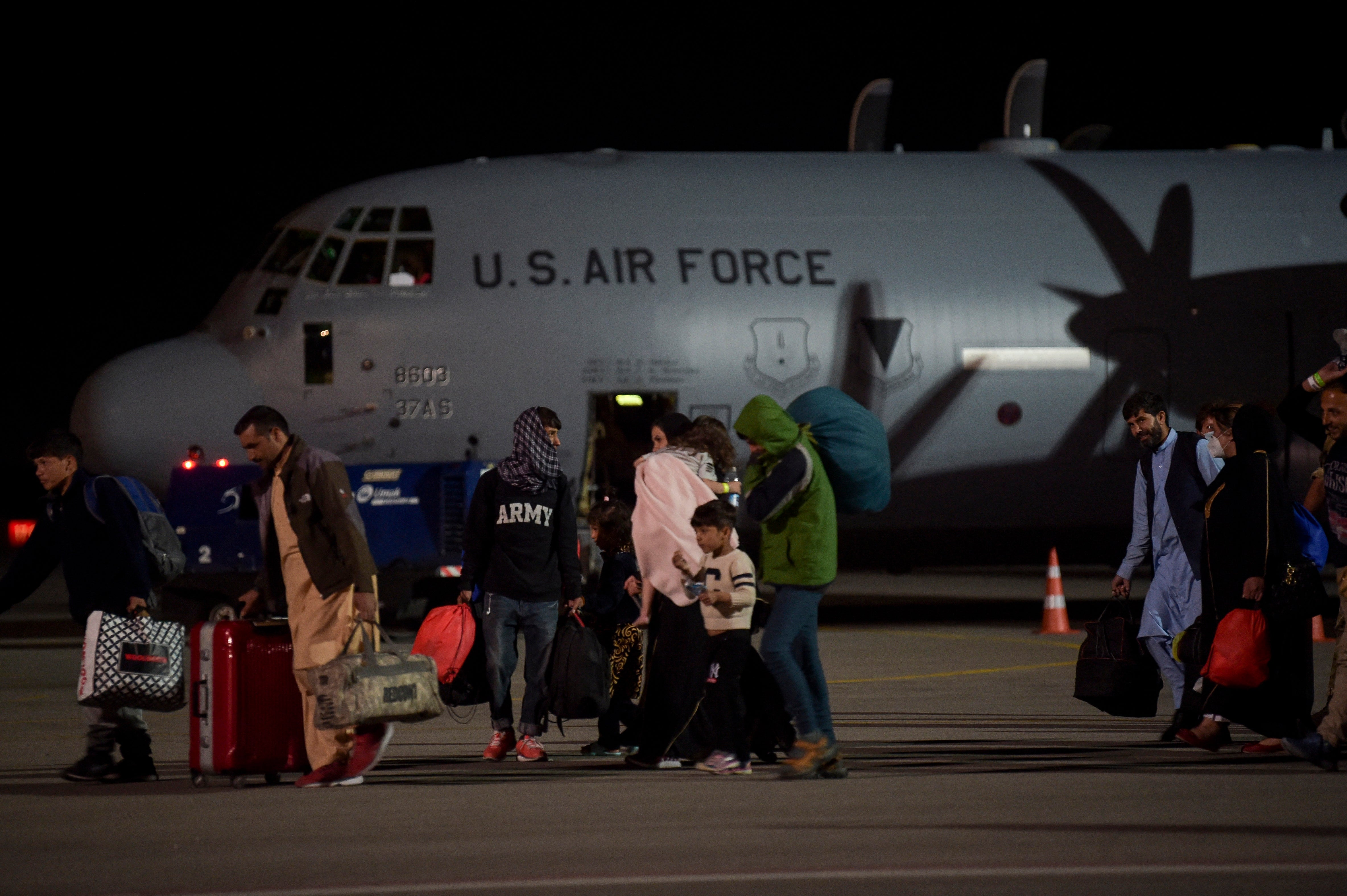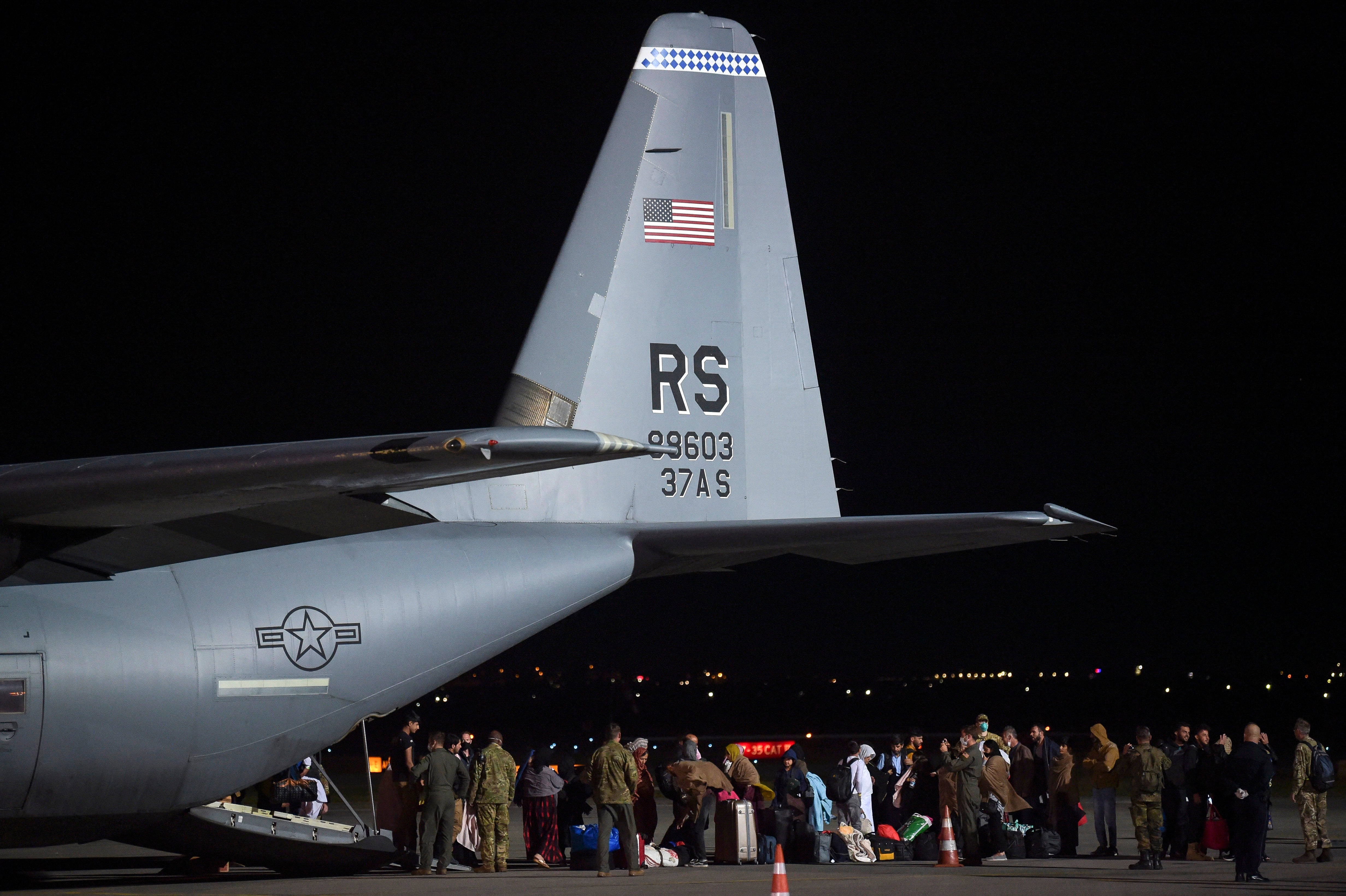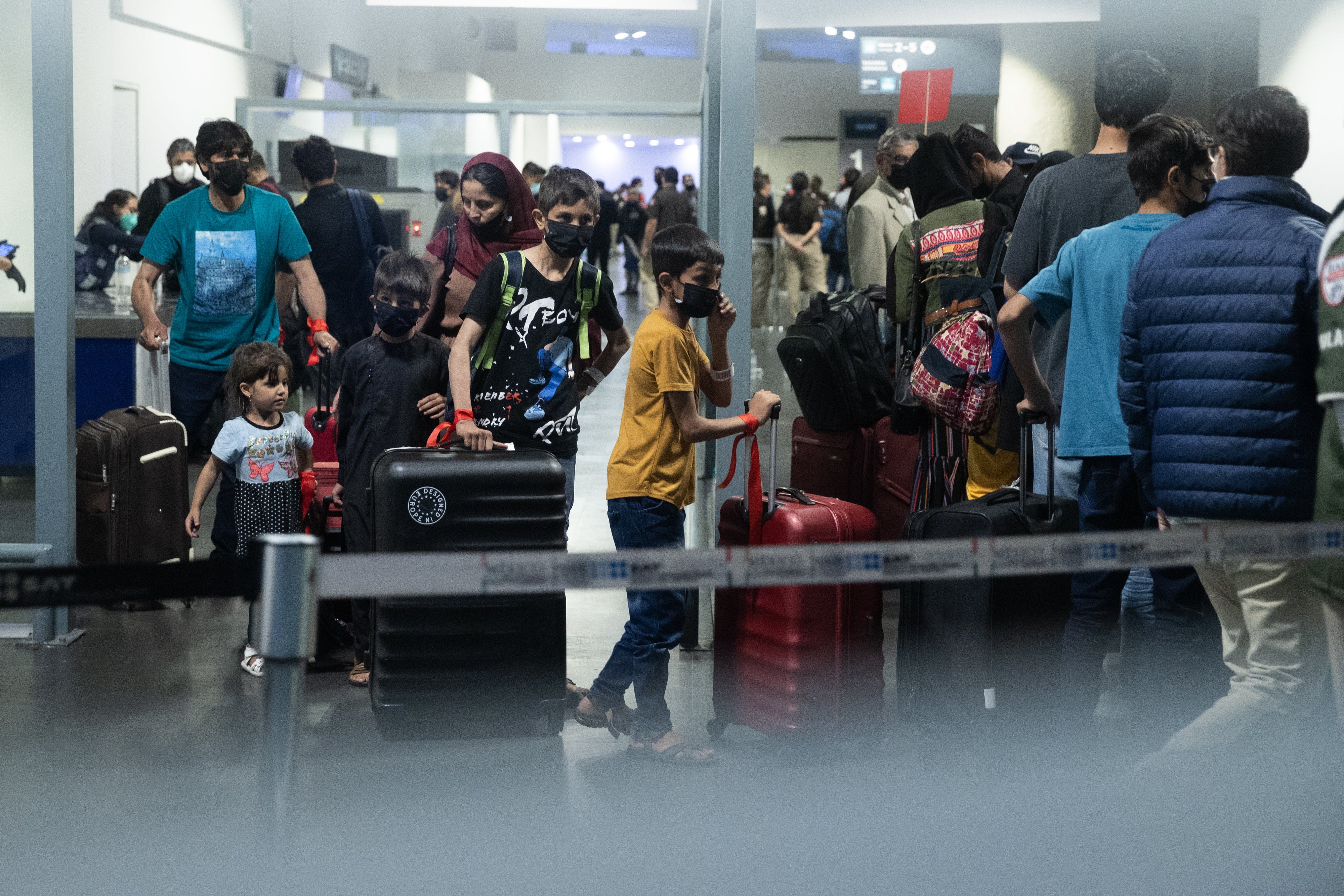Tens of thousands of Afghan refugees are scattered around the world, where they face years of uncertainty
Former four-star US general warns processing refugees in third countries could take ten years, writes Andrew Buncombe


Your support helps us to tell the story
From reproductive rights to climate change to Big Tech, The Independent is on the ground when the story is developing. Whether it's investigating the financials of Elon Musk's pro-Trump PAC or producing our latest documentary, 'The A Word', which shines a light on the American women fighting for reproductive rights, we know how important it is to parse out the facts from the messaging.
At such a critical moment in US history, we need reporters on the ground. Your donation allows us to keep sending journalists to speak to both sides of the story.
The Independent is trusted by Americans across the entire political spectrum. And unlike many other quality news outlets, we choose not to lock Americans out of our reporting and analysis with paywalls. We believe quality journalism should be available to everyone, paid for by those who can afford it.
Your support makes all the difference.Up to 100,000 Afghan refugees have been scattered around the world in the aftermath of the Taliban takeover, plunged into anxiety and fear and facing bureaucratic hurdles that could leave them stranded for years.
In the two weeks between the Taliban taking control of Afghanistan and the 31 August deadline for the US to complete the evacuation of both civilians and its soldiers, around 123,000 individuals were flown out. The US said its own aircraft had carried 79,000 people, including 6,000 Americans and more than 73,500 third-country nationals and Afghan civilians.
Yet campaigners say that while this mad-dash scramble may have saved huge numbers of lives, it has cast tens of thousands of individuals into uncertain futures.
Up to 20 countries, ranging from Albania to Uganda, have agreed to house some Afghans on a temporary basis while their documentation and legal status is assessed. Those working with refugees say there are reports of some people having no idea of their destination when they board a plane, and that some are still unsure even when they land.
Recently, a former four-star US marine general, James “Hoss” Cartwright, urged the international humanitarian community to focus immediately on establishing places where refugees can live when they move from the US’s temporary staging locations. He said they may be there for a decade.
“The hard thing is to get people focused on the longer-term refugee population. They’re not in a place where they can stay, they’re not in a place where they’re going to get settled,” he said at an event organised by the Atlantic Council in Washington DC.
The general, who served as vice chair of the Joint Chiefs of Staff and is a scholar at the Centre for Strategic and International Studies, added: “They are going to have to be in place for five to 10 years. It’s going to take that long to sort out the refugee status.”
In the drama of the US’s final evacuation from Afghanistan, an act that ended a 20-year military occupation, much media attention has focused on the deaths of 13 US troops, and more than 100 Afghans, killed in a suicide bomb attack in the very final days. There has also been criticism of US president Joe Biden for leaving behind up to 200 American citizens and potentially tens of thousands of Afghans who had worked with the US or with other allied governments.
Indeed, already under pressure from Republicans, Mr Biden has often sought to emphasise the blocks he is putting in the way of ordinary Afghans coming to the US.
“Planes taking off from Kabul are not flying directly to the United States,” Mr Biden said last month. “At these sites ... we are conducting thorough security screening for everyone who is not a US citizen or a lawful permanent resident.”
There has been much less focus on the very basic question of what will happen now to the 100,000 or more Afghans who were flown out, either to the US or to third countries.
Robyn Barnard, an immigration expert at Human Rights First, told The Independent there was concern about having people processed outside of the US.
“We’re urging the government to not leave people in these countries for visa processing, because some of the processing times can stretch into many years,” she said.
Rather, her organisation is urging Mr Biden allow refugees to enter the US on so-called “parole”, and to process their applications there.
“Many of the people in these countries are pretty vulnerable and shouldn’t be left to languish in other countries when they have support here, and there’s a large community of Afghan Americans to support them,” she said.

One of the countries that has accepted several hundred refugees, including a number of Afghan journalists, is Mexico, where one of the groups helping them is the International Rescue Committee (IRC).
Speaking from Mexico City, Raymundo Tamayo, the IRC’s country director for Mexico, said his group was telling refugees they should expect to be there for anywhere between 12 and 18 months before they are in a position either to move on or to apply for residency in Mexico.
He said the people he spoke to were tired, and grateful to be there, but also concerned about friends and family still in Afghanistan. “Mexico has a long history of welcoming evacuees and asylum seekers when conflict has hit the hardest,” he said.
Last month, as the US flew its final evacuation mission, America, along with 98 other countries, said it was prepared to offer safe harbour to Afghans. So far, the list of nations that have actually taken people or given a firm commitment to provide visas numbers less than 20, and is made up of Albania, Australia, Kosovo, North Macedonia, Spain, the UK, the US, Canada, Uganda, Rwanda, Mexico, Germany, France, Iran, Pakistan, Spain and Tajikistan.
Some, such as Spain and France, have agreed to accept fewer than 100 families.
Britain has evacuated 8,500 Afghans, most of whom had worked with UK forces and have been resettled under the Afghan Relocations and Assistance Policy (ARAP). The government says it plans to accept an additional 5,000 vulnerable Afghans in the next year, and 20,000 in the long term, under a separate programme that has not yet started.
Meanwhile, The Independent has launched a campaign urging the government to be more generous.
The US is reportedly housing 20,000 Afghan evacuees in five states – Virginia, Wisconsin, New Mexico, New Jersey and Indiana – with another 40,000 overseas.
A number of countries, including Australia, Switzerland and Turkey, have made clear they do not want to accept “thousands” of Afghans. Some, including Austria, China and Russia, have said they will not accept any whatsoever.
The Soviet Union launched its own, bloody occupation of Afghanistan in the 1980s. But Vladimir Putin said he would not open the country’s borders, and would not accept “militants showing up here under cover of refugees”.
In some of the countries where refugees have arrived, including Uganda, some locals have expressed concerns about the alleged threat presented by people fleeing decades of war. In the United States, Republicans have sought to weaponise the issue to attack Mr Biden.
The influential Fox News broadcaster Tucker Carlson, who some believe could run for the presidency in 2024, has claimed America is facing an “invasion”.
The US state department did not answer specific questions as to how long processing visas would take, or whether people were told where they were being flown to.
“The Biden administration has demonstrated, in the face of significant challenges, its sacrosanct commitment to the thousands of brave Afghans who have stood side by side with the United States over the course of the past two decades,” a spokesperson said in a statement, adding that it was escalating its processing of so-called SIV visas for those most at risk.
This week the state department admitted that the vast majority of Afghans who had worked for the US as interpreters or in other roles, and were eligible for such visas, were still in Kabul.
Rina Amiri, a former adviser to the late Richard Holbrooke, who was himself a special adviser to Barack Obama on Afghanistan and Pakistan, has been seeking to raise awareness of the plight of Afghans who are now stranded “everywhere”.

Ms Amiri, a senior fellow at New York University’s Centre for International Cooperation, said friends had been calling her, asking how they could help. She said she advised them to start calling anyone in government or business or philanthropy who could help.
She said this entrepreneurial, grassroots effort had linked regional experts with people with enough spare money to charter a plane, as well as government officials.
“One friend started calling people she knew and tried to find countries that would take people,” she said. “She had no luck with Greece, but Spain agreed to take 40 families.”
Ms Amiri said many were leaving Afghanistan with nothing. She was hearing from people getting on planes not knowing where they were going, or even where they had landed.
A major challenge, she said, was to counter a simplistic perception in the west of Afghanistan being an utterly poor country. The truth, she said, is that it has a sizeable middle class, and those people fleeing with just a bag previously had “homes, cell phones, televisions”.
Of the effort to help those people, she said she was “immensely moved by individuals and organisations and people who have just stepped up and mobilised because they are horrified by what’s happening out there”.
She added: “I’ve never seen anything like this anywhere. And it both breaks your faith in institutions, and restores your faith in humanity.”
Join our commenting forum
Join thought-provoking conversations, follow other Independent readers and see their replies
Comments